#trump insurrection
Explore tagged Tumblr posts
Text
A brief reminder of what a peaceful transfer of political power in America once looked like, until today’s traitorous Republican Party + seditious sore losers like Donald Trump came along.
#LockHimUp
#politics#donald trump#republicans#trump indictment#trump mugshot#trump mugshot day#peaceful transfer of power#lock him up!#lock his ass up#tiktok#trump insurrection#jan 6th#jan 6 insurrection#january 6#january 6th
761 notes
·
View notes
Text

Shenna Bellows knows it was a multi-month effort. Conservative SCOTUS should feel shame, but shills and operatives have no conscience.
174 notes
·
View notes
Text
"A New York grand jury has indicted Donald Trump on allegations linked to a business records investigation related to a "hush money" payment made to adult film star Stormy Daniels. Trump is the first former president in U.S. history to face criminal charges. His attorney Susan Necheles confirmed the indictment. No other details have been released yet.
The specific charge or charges have not yet been made public, and one Trump attorney told CBS News his legal team is "still waiting to learn" details of the indictment.
Manhattan D.A. Alvin Bragg's office said in a statement that it had contacted Trump's attorney "to coordinate his surrender to the Manhattan D.A.'s office for arraignment on a Supreme Court indictment, which remains under seal," and more guidance would be provided "when the arraignment date is selected." ...
The case stems from a payment made just days before Trump was elected president in 2016. His former attorney, Michael Cohen, arranged a $130,000 wire transfer to Daniels to buy her silence about an alleged affair...
The indictment comes as Trump faces other potential criminal cases. In Fulton County, Georgia, District Attorney Fani Willis is mulling charges in an investigation into alleged efforts by Trump and more than a dozen of his allies to undermine [Georgia]'s results in the 2020 election, which he lost to President Joe Biden. A special purpose grand jury conducted a six-month probe last year and delivered a report with its findings to Willis in January. The majority of that report was ordered sealed, at least until charging decisions are made.
In Washington, D.C., special counsel Jack Smith is overseeing two Justice Department investigations into alleged efforts to interfere with the lawful transfer of power following the 2020 presidential election, and Trump's handling of sensitive government documents [note: specifically top secret, classified documents] found at his Mar-a-Lago home and possible obstruction of efforts to retrieve them."
-via CBS News, 3/30/23
TRUMP'S BEEN INDICTED
And by the way he is going to have to surrender himself to the Manhattan DA's office...
Where he will be arrested, fingerprinted, and have his mug shot taken.
(Obviously/sadly he's going to be released instead of held in jail until trial, but STILL)
-via BBC News, 3/30/23
#donald trump#trump#us politics#united states#indictment#trump indictment#trump insurrection#georgia#new york#manhattan#district attorney#alvin bragg#stormy daniels#corruption#2020 election#us president#good news#hope
244 notes
·
View notes
Text
(Long Post/The Atlantic) How Jack Smith Outsmarted the Supreme Court
And why the special counsel’s last-ditch January 6 filing may not matter
By Sean Wilentz

Special Counsel Jack Smith’s recent filing to the D.C. District Court in the Trump v. United States presidential-immunity case both fleshes out and sharpens the evidence of Donald Trump’s sprawling criminal conspiracy to overturn the 2020 election. To understand the filing’s larger significance as well as its limitations, we must first review a bit of recent history.
In its shocking decision on July 1 to grant the presidency at least presumed immunity from criminal prosecution for all official acts, the Supreme Court’s conservative majority showed once again that it was intent on immunizing one president in particular: Donald Trump. The Court majority’s decision, delivered by Chief Justice John Roberts, was explicit. It held, for example, that Trump’s alleged efforts to pressure then–Vice President Mike Pence into voiding the 2020 election results on January 6 constituted “official conduct” from which Trump “is at least presumptively immune from prosecution.” That presumed immunity, the Court contended, would disappear only if the prosecution could convince the courts that bringing the case to trial would pose no “dangers of intrusion on the authority and functions of the Executive Branch.”
The Court thus remanded the case back to the D.C. District Court to decide the matter, along with the question of whether Trump is actually immune to the rest of the charges against him. How, though, could the prosecution of a president or former president over an “official act” fail to intrude on presidential authority? Seemingly, anything pertaining to Trump’s contacts with the vice president as he presided in his constitutional role as president of the Senate—as well as Trump’s contacts with the Department of Justice, which the Court also singled out and which the prosecution, significantly, felt compelled to omit from its revised indictment—deserves, as the Court sees it, virtually ironclad protection, a powerful blow against the entire January 6 indictment.
Although the sweeping outcome of Trump v. United States took most legal commentators by surprise, its protection of Trump was completely predictable given the Court’s previous conduct regarding the January 6 insurrection. The refusal of Justices Clarence Thomas and Samuel Alito to recuse themselves from any matter related to the insurrection, despite their own conflicted positions—Thomas due to the direct involvement of his wife, Ginni Thomas, in the subversion; Alito because of his flag-waving support of Trump’s election denials—has received the most public attention concerning the Court majority’s partisan partiality. But another set of telltale signs becomes apparent after a closer tracking of the Court’s decision making.
Almost as soon as the case against Trump came before D.C. District Court Judge Tanya Chutkan, the Supreme Court played along with the Trump lawyers’ efforts to delay the trial until after the November 2024 election. First, after Chutkan ruled against Trump’s absolute-immunity claims in December 2023, Special Counsel Smith asked the Supreme Court to expedite matters by hearing the case immediately, not waiting for the U.S. Court of Appeals to rule on Trump’s appeal of Chutkan’s decision. The Supreme Court refused. Two months later, though, when the appeals court ruled against Trump and set a new trial date, the Supreme Court dragged its feet for as long as possible before announcing that it would take up the case after all. It then set the date for oral arguments as late as possible, at the end of April. This meant that even before hearing the case, the Court made it highly unlikely that Trump’s trial would proceed in a timely manner, effectively immunizing Trump until after the election.
Although radical in its long-term reconstruction of the American presidency, the ruling more immediately affirmed and extended the Court’s protection of Trump from prosecution. By remanding the case to the D.C. Circuit Court to decide what in the indictment constitutes official (and, therefore, presumably immune) conduct, the justices guaranteed that no trial would occur until after Election Day. After that, meanwhile, should Trump win the election, no trial would occur at all, because he would certainly fire Smith and shut down the proceedings.
Smith’s filing tries to slice through the Court’s security shield regarding the insurrection. Skillfully quoting from or alluding to language in the Court majority’s own opinion, the filing demolishes the notion that Trump’s activities, culminating on January 6, deserve immunity. Outwardly, Smith’s filing respects the Court’s dubious ruling about the immunity of official presidential acts. Legally, Smith had no choice but to operate within that ruling, a fact that sharply limited how far his filing could go. But even though it never challenges the conservative majority directly, the filing makes a case, incontrovertible in its logic and factual detail, that the core of Trump’s subversion involved no official actions whatsoever. It persuasively argues, with fact after fact, that Trump was the head of an entirely private criminal plot as a candidate to overthrow the election, hatched months before the election itself.
In remounting his case, Smith has taken the opportunity to release previously unknown details, some of which he says he doesn’t even plan to present at trial, that underscore the depravity as well as the extent of Trump’s criminal actions. Consider, for example, Smith’s telling of Trump’s reaction to the news from one of his staff, at the height of the violence on January 6, that his tweets attacking Pence had placed Pence’s life in extreme danger. “So what?” Trump reportedly replied. He had clearly intended for his tweets to reach the mob at the Capitol. His nonchalance about the vice president’s life epitomizes the lengths to which he would go to complete his coup d’état.
But the real force of Smith’s filing is in its tight presentation of the evidence of a criminal conspiracy in minute detail, dating back to the summer before the 2020 election, when Trump began publicly casting doubts on its legitimacy should he not be declared the winner. “The only way they can take this election away from us is if this is a rigged election,” he told the Republican National Convention in his nomination-acceptance speech in August 2020.
From that point forward, Trump was at the center of every effort to keep him in power, even once he was fully aware that he had no grounds to contest Joe Biden’s victory. There were his private operatives sowing chaos at polling places and vote-counting centers, the scheming to declare victory on Election Night before the results were in, the bogus legal challenges, the fake-elector fraud, the plot to deny official certification by Congress on January 6, and finally the insurrection itself. “It doesn’t matter if you won or lost the election,” one witness reports Trump saying. “You still have to fight like hell.”
The crucial point to which the filing unfailingly returns is that none of Trump’s actions listed in the revised indictment, even those that the Court cited as “official,” deserves immunity. As Smith makes clear, the Framers of the Constitution deliberately precluded the executive branch from having official involvement in the conduct of presidential elections. The reason was obvious: Any involvement by a president would be an open invitation to corruption. To make the case that any such involvement falls within a president’s official duties would seem, at best, extremely difficult.
It is here that Smith turns the Court’s Trump v. United States ruling to his own advantage. Concerning specific charges that Trump’s speechmaking contributed to the insurrection, the Court allowed that “there may be contexts in which the President speaks in an unofficial capacity—perhaps as a candidate for office or party leader.” Quoting from an earlier Court decision, the ruling then states that determining these matters would require that the district court undertake “objective analysis of [the] ‘content, form, and context’” of the speeches in question, a “necessarily fact-bound analysis.” Likewise, regarding the allegations apart from Trump’s supposedly official communications and public speeches, the justices enjoined the district court, on remand, to “carefully analyze” those charges “to determine whether they too involve conduct for which the President may be immune from prosecution.”
Citing those exact phrases as the Court’s standard of inquiry and proof, Smith then offers evidence that every count in the revised indictment concerns either technically official conduct undeserving of immunity or unofficial conduct involving Trump’s private actions as a candidate and not his official duties as president. These actions include his efforts to pressure state officials, preposterously presented by Trump’s defense attorneys as official inquiries into election integrity. They include his conversations about elector slates, about which the president has no official duties. They also encompass all of his speechmaking about the allegedly crooked election, up to and including his incitement at the January 6 rally at the Ellipse, which was not an official function.
Above all, Smith nails down a matter that the Court’s opinion went out of its way to declare “official” and presumably immune: Trump’s efforts to pressure Pence into declining to certify Biden’s win. Although the filing acknowledges that the Court had held that these conversations between Trump and Pence about “their official responsibilities” qualified as “official,” it rebuts the presumption that those discussions therefore qualify as immune. The filing observes that the discussions did not concern Pence’s duties as president of the Senate “writ large,” but only his distinct duties overseeing the certification of a presidential election—a process in which a president, whether or not he is a candidate for reelection, has, by the Framers’ considered design, no official role.
Here the logic of Smith’s argument cuts to the quick. By the Court majority’s own standard, as stated in its Trump v. United States decision, the presumption of immunity for official actions would disappear only if a prosecutor could demonstrate that bringing criminal charges against a president or former president would not present “dangers of intrusion on the authority and functions of the Executive Branch.” Because certification of a presidential election, the subject of Trump’s “official” pressuring, involves neither the authority nor the functions of the executive branch, the immunity claims concerning that pressuring are therefore groundless—according to the Court majority’s own logic.
The rest of Trump and Pence’s interactions do not even qualify as official, Smith shows. In all of their other postelection, in-person conversations and private phone calls, Trump and Pence were acting not in their capacities as president and vice president but as running mates pondering their electoral prospects, even after Biden had been declared the winner. If, as the Court itself has stated, context is important with regard to speechmaking, so it is important with regard to communications between the top officials of the executive branch. To be sure, Smith allows, Trump and Pence “naturally may have touched upon arguably official responsibilities,” but “the overall context and content of the conversations demonstrate that they were primarily frank exchanges between two candidates on a shared ticket”—strictly unofficial conduct.
In all, by recasting the case against Trump in view of the Court’s immunity decision, Smith has drawn upon that very ruling to establish that none of Trump’s actions in connection with January 6 cited in the revised indictment is immune from prosecution. And in doing that, he has further discredited an already discredited Supreme Court.
Unfortunately, important as it is with respect to Smith’s specific case, the filing cannot come close to undoing the damage that Trump v. United States has wrought, with its authorization of an authoritarian American regime. The very fact that Smith had to omit from both his revised indictment and his filing Trump’s nefarious but official dealings with the Justice Department, including his brazen hiring and firing of top law-enforcement officials on the basis of who would do his personal bidding, shows how fearsomely the Court’s immunity decision has constrained the special counsel. There was a great deal more criminal behavior by Trump and his co-conspirators, as laid out in detail in the House January 6 committee report, that Smith could not touch because the Court has effectively immunized it as “official” activity under the executive branch’s authority.
These limitations show all over again how the Court has given the president absolute license to rule like a tyrant, against which even the ablest special counsel is virtually powerless. Nothing in Smith’s filing alleviates Justice Sonia Sotomayor’s judgment in her forthright dissent in Trump v. United States that the decision empowers the president, acting in his official capacity, to order the assassination of political rivals, to take a bribe in exchange for a pardon, to organize a military coup with impunity: “Immune, immune, immune.” That Smith managed to outsmart the Court as much as he did is a remarkable feat that could have important results—but only if Kamala Harris succeeds in winning the presidency.
On the basis of their past decisions, it is reasonable to expect that both the D.C. district court under Judge Chutkan and the U.S. Court of Appeals will rule in favor of Smith. Trump v. United States would then go once again before the Supreme Court. This will happen if Harris wins the election, because a Justice Department under her administration would almost certainly allow Smith to remain to continue prosecution of Trump. What, then, would the Court do? Would it uphold those decisions and throw Trump upon the mercy of a D.C. federal jury? Or would it strike those decisions down, thereby redoubling the disgrace it earned the first time around?
The only way the Court can avoid that dilemma is if Trump wins the election, an outcome that its conservative majority would now have all the more reason to desire. But what happens if, as seems highly possible, the election leads to litigation, much as the 2020 election did, only this time the Court is left to make the final decision? Will the Court then intervene as Trump’s enabler once again, installing him as a constitutionally tainted president, allowing him to kill the indictment against him, and to pardon those convicted of violent crimes in the attack on the Capitol whom he calls “hostages”? The Court, in Trump v. United States, claimed that it was protecting the sanctity of the presidency, but if it aids Trump in his attempt to escape justice for his January 6 insurrection, it will further seal its illegitimacy while also sealing MAGA’s triumph—and, with that, the majority of Americans, not to mention the rest of the world, will pay a crushing price.
#refrigerator magnet#jack smith#special counsel#trump insurrection#criminal#corrupt supreme court#corrupt SCOTUS#vote#kamala harris#kamala 2024#harris walz 2024
7 notes
·
View notes
Text
“James Sample, a constitutional law professor at Hofstra University, agreed that the filing was necessary in light of ‘the Supreme Court’s dramatic expansion of Presidential immunity,’ saying that ‘an oversized, highly detailed legal brief, detailing with as much factual specificity as is possible, is not only appropriate, but necessary.’”
“It’s precisely because Mr. Trump, along with his nakedly partisan Supreme Court allies, has so stunningly succeeded in thwarting the truth-finding mechanism of an adversarial trial, that Jack Smith’s filing is essential both for the task of categorizing official and non-official acts, but also for the filing’s value in adding to the historical narrative of one of the gravest attacks on democracy in American history,’ Sample said.”
“Sample went on to quote former Supreme Court Justice Louis Brandeis, who once said that ‘sunlight is the best disinfectant” in reference to the details expected in the filing and the potential for redaction.”
“If the special prosecutor’s filing sheds light on the complex, violent, deadly and very-nearly successful effort to over urn the 2020 election, then, even apart from the filing’s legal necessity, the filing is a service to the nation,’ Sample said.”
#trump attempts to overturn the election#trump attempted coup#trump insurrection#Jan 6#trump lost the election to Biden#trump persists in claiming falsely that the election was stolen from him#the monstrous mendacity of trump and his maga enablers
4 notes
·
View notes
Text
Yes. He is a crook.
#trump#liar#ignoramus#crook#trump seditious conspiracy#trump insurrection#trump on trial#and he stinks#and loves Putin
6 notes
·
View notes
Text
Joyce Vance, Civil Discourse
Excerpt:
“Neither of the men who tried to attack Trump is a “liberal.” Both have stronger Republican or MAGA ties and considerable evidence of mental health issues. That Vance is willing to mischaracterize the facts and talk so cavalierly about Harris’ safety is heart-stopping. His willingness to twist the truth for political gain makes clear that the guy Trump would have one heartbeat away from the presidency is no better than Trump himself. The pair of them may reject violence when it’s directed towards them—as we all should—but they are unconcerned when anyone else is the target.”
“Tuesday is National Voter Registration Day. It’s a great day to ask people around you if they’re registered and help them complete the process if they aren’t. Then make plans to turn voting into a celebration. Get together to vote or get together afterward. Don’t take your right to participate in democracy for granted. Every day, Donald Trump and J.D. Vance are showing us just how important our votes are in this election.”
2 notes
·
View notes
Text

Here you see Trump actually admitting he had every right to interfere with a presidential election. Fox News didn’t even call him on it. Maybe Jack Smith will.
4 notes
·
View notes
Text
Jan. 6, Three Years Later: 10 Documentaries to Watch | FRONTLINE
This article contains links to ten of the best documentaries made about the Trump Insurrection.
4 notes
·
View notes
Text

Off the Mark
#political satire#editorial cartoons#politics#political cartoon#donald trump#trump#mark meadows#january 6#georgia#fulton county#fani willis#trumpism#trump insurrection#mug shot
10 notes
·
View notes
Text
Can't Have Nice Things
The Ketamine King Musk has shutdown the IRS's Free Tax Filing system.
Of all the things a government could off, a way to Freely calculate and file your taxes seems like a good one. But the richest man in the world thinks we shouldn't have that.
25K notes
·
View notes
Text
An open letter to the U.S. Congress
📜 Impose Section 3 of 14th Amendment Against Trump
9 so far! Help us get to 10 signers!
While it is clear to everyone who is not part of the cult of Trump, Donald Trump intentionally caused an insurrection on January 6, 2021. Senate Republicans have indicated that they will not vote to impeach the president, claiming the violence on Capitol Hill was of no consequence. The date and purpose of Trumps rally was known to everyone and most Americans were fearful that these domestic terrorist groups would cause real harm to our democracy.
While some have claimed that censure, not impeachment of Trump, would be a victory, I completely disagree. Congress needs to invoke Section 3 of the 14th Amendment to the Constitution to protect our country from this treacherous person. Section 3 of the 14th amendment to the Constitution states that no person shall hold office if they have taken part in an "insurrection or rebellion " against the United States of America. This only requires a simple majority or 51 votes and that is very attainable.
Invoking section 3 must be done. Our country had a near death experience with democracy and we cannot allow Mr. Trump to even consider running for the office of President of the United States ever again! There is no doubt that the people who participated in this violent attack on our democracy have no allegiance to our country. Their only allegiance is to Mr. Trump. He is a dangerous man and they are dangerous people. We must remove Donald Trump from ever attaining public office again.
Thank you
▶ Created on February 5, 2021 by Kristine
Text SIGN PEREHG to 50409
🏠 Tell the US House to Expel Members of Congress That Participated in The Jan 6 attack on The Capitol
🖊️ Text SIGN PSDAJA to 50409
CTRL+A to skip The Daily Beast paywall:
Trumpland Civil War Historians Agree 14th Amendment Disqualifies Trump From Ballot EXPERT OPINION More than two dozen historians filed an amicus brief in support of Colorado’s attempt to remove Donald Trump from the 2024 ballot. Amanda Yen Breaking News Intern
Published Jan. 28 2024 4:33PM EST Donald Trump sitting between lawyers in the New York courthouse where his civil fraud trial was held. Jefferson Siegel/Getty Images A coalition of U.S. history scholars have filed an amicus brief to the Supreme Court, agreeing with the state of Colorado that the 14th Amendment’s insurrectionist clause should bar Donald Trump from presidential candidacy this year.
The 25 historians have expertise in the Civil War and Reconstruction eras, the period in which the 14th Amendment was added to the Constitution. They argue that upon its addition in 1866, “decision members crafted Section III to cover the President and to create an enduring check on insurrection, requiring no additional action from Congress.”
Trump’s lawyers have objected to the Colorado ruling, arguing that the ex-president’s behavior doesn’t amount to insurrection and that Section III of the 14th Amendment exempts presidents from the rule. A lower appeals court ruled in Trump’s favor, which prompted the state to appeal the decision to the highest court in the land.
Trump Begs Supreme Court to Let Him Stay on Colorado Ballot PRETTY PLEASE? AJ McDougall, Matt Young, Brett Bachman Donald Trump The 14th Amendment itself states that no person shall “hold any office, civil or military, under the United States” if that person “had previously taken an oath” as “an officer of the United States” and “engaged in insurrection or rebellion against the same, or given aid or comfort to the enemies thereof.”
In their brief, the historians gave contemporary evidence from the 1860s and 1870s that this clause was understood to cover the president. Using Senate-floor debate between two members involved in the drafting, they argue that the president was unquestionably included in the meaning of “an officer under the United States.” They also gave evidence from the 1787 Constitutional Convention, in which framers frequently referred to the president as a “national officer.”
“For historians, contemporary evidence from the decision-makers who sponsored, backed, and voted for the 14th Amendment is most probative,” the historians wrote. In doing so, they adopted the originalist interpretation of the Constitution that the Supreme Court’s conservative majority has employed in recent rulings, including in the rollback of Roe v. Wade.
Colorado is one of several states that has attempted to remove Trump from the ballot. Of the 35 states with filed challenges, only two—Colorado and Maine—successfully disqualified Trump, with those decisions appealed to the Supreme Court. Sixteen states have yet to make a decision regarding Trump’s candidacy, and the remaining 17 have thrown out the filings.
States like Colorado cite the former president’s role in inciting the Jan. 6 insurrection as why he should be ineligible to run for office again. Following the 2020 election, Trump refused to admit defeat to President Joe Biden, falsely attacked the integrity of the electoral system, and attempted to rouse supporters to “stop the steal” of the presidency.
After a Trump rally—where the ex-president repoeated his election fraud lies and urged his reporters to “fight like hell”—insurrectionists flooded the Capitol with the intent of preventing Congress from certifying the election results.
The appeals case is running on an expedited timeline, with the Supreme Court set to hear arguments on Feb. 8. A decision is likely to follow soon after. Colorado’s primary will be held, along with several other states, on Super Tuesday, March 5.
A coalition of U.S. history scholars have filed an amicus brief to the Supreme Court, agreeing with the state of Colorado that the 14th Amendment’s insurrectionist clause should bar Donald Trump from presidential candidacy this year.
The 25 historians have expertise in the Civil War and Reconstruction eras, the period in which the 14th Amendment was added to the Constitution. They argue that upon its addition in 1866, “decision members crafted Section III to cover the President and to create an enduring check on insurrection, requiring no additional action from Congress.”
#Kristine#PEREHG#resistbot#jan 6#jan 6th insurrection#jan 6 2021#jan 6 capitol attack#presidential candidate#Trumpland#Civil War Historians#14th Amendment#Insurrection#Amicus Brief#US Constitution#Supreme Court#Donald Trump#Presidential Candidacy#Trump On Ballot#Election 2024#Colorado#States Rights#Political Challenges#Reconstruction#Trump Insurrection#History Scholars#Constitutional Law#Election Fraud#January 6#Stop The Steal#Democracy
304 notes
·
View notes
Text
posted a video about the whole congress voting on trumps insurrection disqualification, or whatever the fuxk it's called, and i've been fuxking crawling in my skin because i hate being perceived negativity, but i can't take it down because i need my family to know about it, we can't be silent and complicit, social anxiety can get the fuxk out
1 note
·
View note
Text
Stewart Rhodes, the founder and leader of the Oath Keepers, was sentenced to 18 years in prison on Thursday for leading a far-reaching plot to keep then-President Donald Trump in power after he lost the 2020 election.
A second Oath Keepers member, Kelly Meggs, the leader of the Florida contingent of the group, was sentenced to 12 years in prison.
The sentences are the first handed down in over a decade for seditious conspiracy.
“What we absolutely cannot have is a group of citizens who – because they did not like the outcome of an election, who did not believe the law was followed as it should be – foment revolution,” District Judge Amit Mehta said before handing down the sentence. “That is what you did.” ...
Mehta said Rhodes, 58, has expressed no remorse and continues to be a threat...
Earlier on Thursday, Mehta ruled that Rhodes’ actions amounted to domestic terrorism.
“He was the one giving the orders,” Mehta said. “He was the one organizing the teams that day. He was the reason they were in fact in Washington DC. Oath Keepers wouldn’t have been there but for Stewart Rhodes, I don’t think anyone contends otherwise. He was the one who gave the order to go, and they went.”
Rhodes was convicted of seditious conspiracy by a Washington, DC, jury in November in a historic criminal trial that was a test of the Justice Department’s ability to hold January 6 rioters accountable and validated prosecutors’ arguments that the breach of the Capitol was a grave threat to American democracy.
The seditious conspiracy charge has rarely been brought in the century and a half that the statute and its forerunners have been on the books...
US Capitol Police officer Harry Dunn, who testified earlier this week about his experience on January 6, told CNN that Donald Trump should be “next.”
“It is a step towards full accountability,” Dunn said. “[Stewart Rhodes's] lawyers argued that Donald Trump is the root of the problem, and I totally agree. Let’s get him next.” ...
CNN National Security Analyst Juliette Kayyem said the sentencing should have a “chilling effect on these groups,” especially as the presidential election season begins.
“This tough sentence is going to make the Oath Keepers, the Proud Boys, all these organizations, it’s going to make them more difficult for them to recruit and, as important, for them to raise money,” Kayyem said...
Rhodes, who was accused of leading dozens other individuals in a coordinated plot that culminated in the January 6 siege, was also found guilty of obstructing an official proceeding and tampering with documents.
Of those that Rhodes led, 22 have already been convicted of various federal crimes by a jury or guilty plea. Eight, including Rhodes’ codefendant Meggs, were convicted of seditious conspiracy.
-via CNN, 5/25/23
#oath keepers#proud boys#stewart rhodes#sedition#seditious conspiracy#january 6#coup attempt#trump insurrection#insurrection#united states#us politics#criminal justice#right wing extremism#good news#hope
112 notes
·
View notes
Text
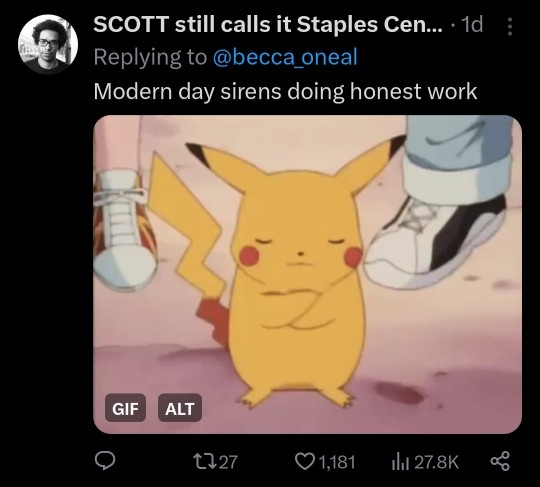
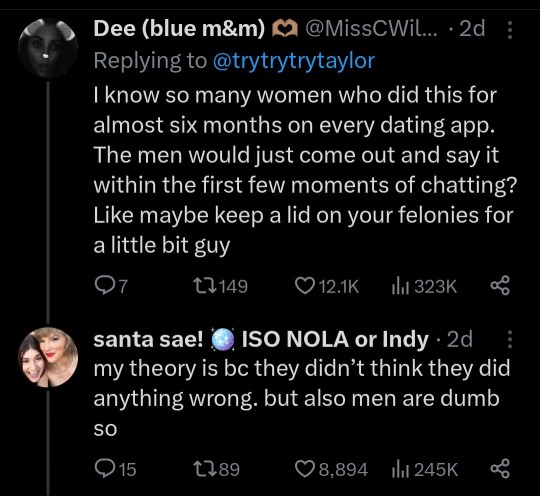
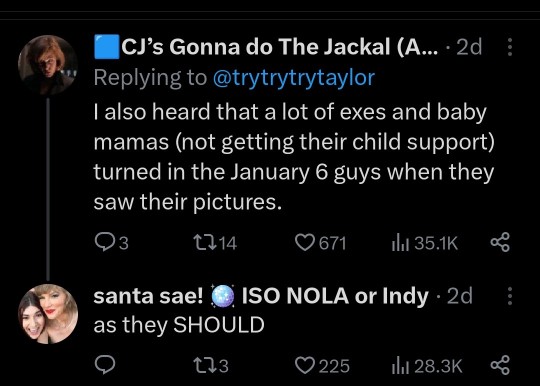
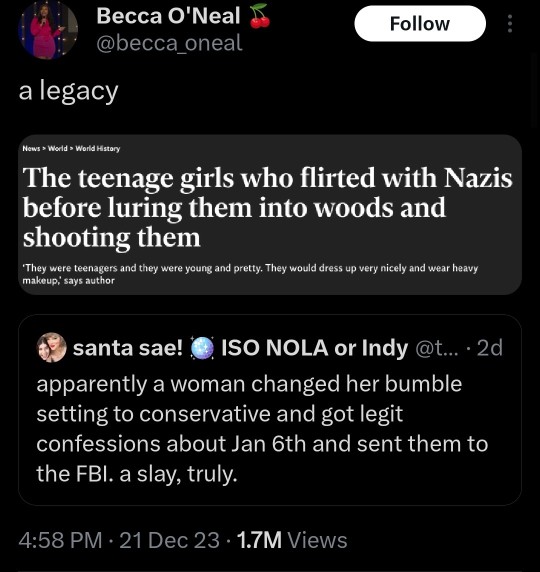
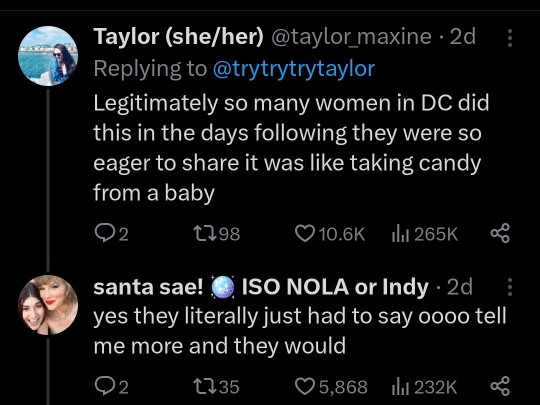
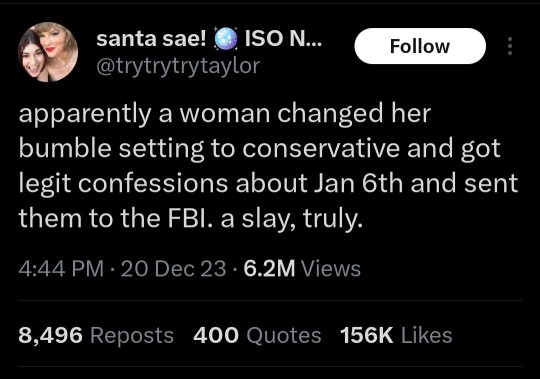
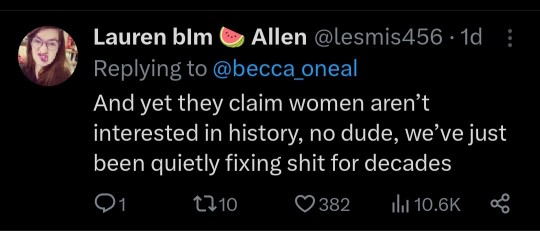
50K notes
·
View notes